I am using a PIC18F26K80 and an XC8 compiler. I am trying to initialise an SD card and create a file. I have simply formatted the SD card on Windows to have a "FAT32" file system and an "Allocation unit size" of 512 bytes. The capacity of the SD card is 2GB. I am using the MDD library from the MLA Legacy version. My main is the following:
FSFILE * file;
char sendBuffer[22] = "This is test string 1";
//**************************************************
// main function
//**************************************************
int main()
{
initIO();
LATBbits.LATB0 = 0;
// Initialise SPI and SD-card
while ( !MDD_MediaDetect() );
// Initialize the device
while ( !FSInit() );
// Initialize
#ifdef ALLOW_WRITES
// Create a new file
file = FSfopenpgm ( "FILE.TXT", "w" );
if ( file == NULL )
while(1);
// Write 21 1-byte objects from sendBuffer into the file
if ( FSfwrite ( (void *) sendBuffer, 1, 21, file ) != 21 )
while(1);
// Close the file
if ( FSfclose ( file ) )
while(1);
#endif
LATBbits.LATB0 = 1; //LED
while(1) {}
return (0);
}
The program gets stuck inside the function "FSInit()" and the error I get from the function is "CE_BAD_PARTITION", which means "The boot record is bad".
The "initIO()" function is the following:
//==============================================================================
// void initIO( void );
//==============================================================================
// Sets the pins on the PIC to input or output and determines the speed of the
// internal oscilaltor
// input: none
// return: none
//==============================================================================
void initIO()
{
OSCCON = 0x75; // Clock speed = 32MHz (4x8Mhz)
TRISA = 0;
TRISB = 0;
TRISC = 0;
TRISBbits.TRISB0 = 0; //LED
TRISCbits.TRISC3 = 0; // set SCL pin as output
TRISCbits.TRISC4 = 1; // set RC4 pin as input
TRISCbits.TRISC5 = 0;
TRISAbits.TRISA5 = 0;
}
The last two bytes of sector 0 are the boot signature and they are meant to be 0x55 and 0xAA and the picture I included confirms that. However, inside the function "LoadMBR" the following check is made:
if((Partition->Signature0 != FAT_GOOD_SIGN_0) || (Partition->Signature1 != FAT_GOOD_SIGN_1))
{
FSerrno = CE_BAD_PARTITION;
error = CE_BAD_PARTITION;
}
else
{
...
}
and although the bytes are the same the first condition is met and it returns with the "CE_BAD_PARTITION" error.
